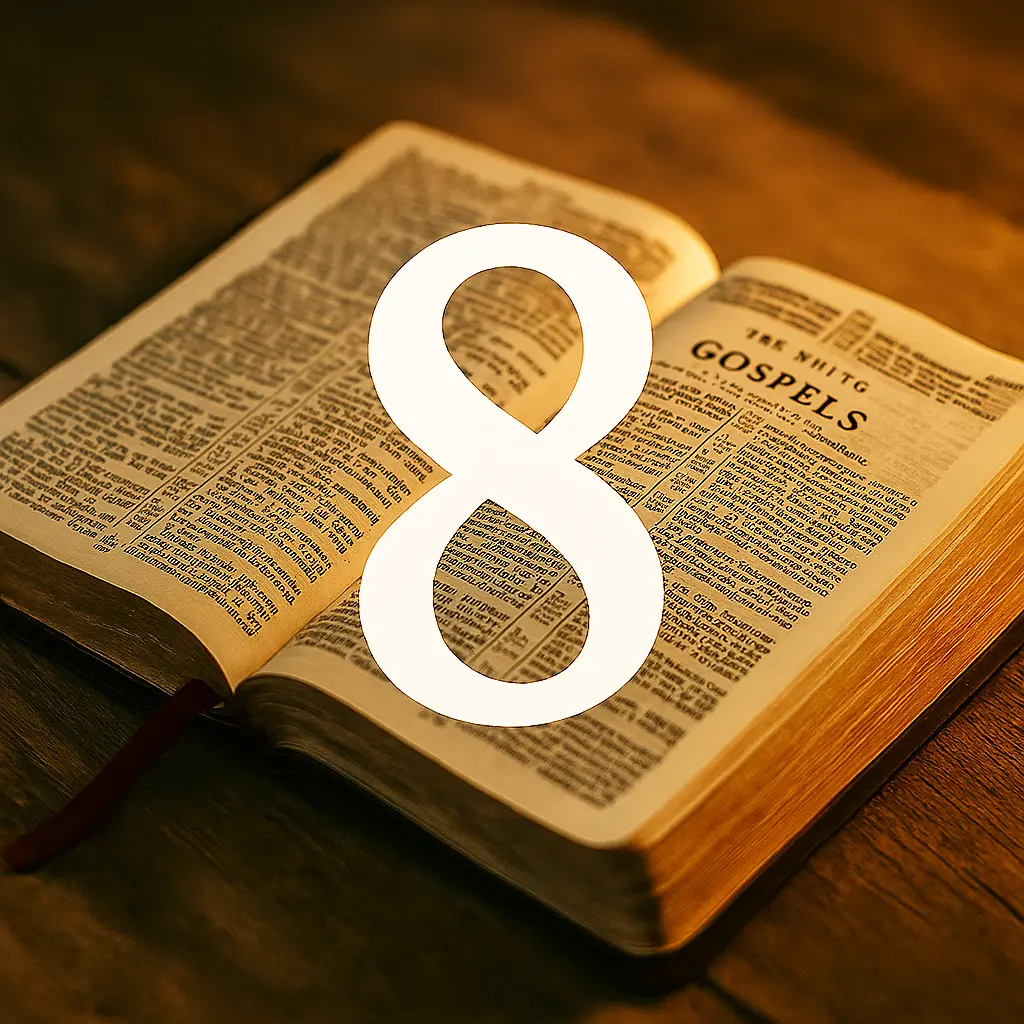What Does the Number 8 Mean in the Bible? Spiritual Meaning and Life Guidance

The number 8 in the Bible carries deep symbolic meaning, often representing fresh starts, renewal, and spiritual transformation. If this number keeps appearing in your life, it may not be random. According to biblical traditions, 8 is linked with new beginnings and moving into a new phase of life—physically, emotionally, or spiritually.
Let’s explore why the number 8 holds such powerful energy and how it might relate to your own personal journey.
8 as a Symbol of New Beginnings
In biblical teachings, the number 8 often marks the start of a new cycle. After 7 days of creation, the 8th day represents something new beginning. This theme of renewal and rebirth runs throughout scripture, making 8 a symbol of resurrection and divine order shifting into something new.
Many people who notice 8 repeatedly say it tends to show up during moments of transition—such as after ending a relationship, changing careers, or when feeling spiritually disconnected. According to intuitive readers, seeing this number may be a gentle nudge that it’s time to let go of what’s ending and welcome what’s next.
Meaning of 8 in Love, Relationships, and Life Stages
From a life path perspective, 8 invites personal growth before focusing on external relationships. If you’re seeing this number while reflecting on your love life, it could be encouragement to build inner stability first. Some interpret it as a sign that healing or strengthening your own foundation will open space for healthier, more aligned relationships.
It can also point to life stage shifts. Maybe you’re closing out a significant chapter—whether it’s work, personal habits, or old ways of thinking. 8 can be a reminder that your “next version” is ready to emerge.
Spiritual Energy and Emotional Meaning of 8
Energetically, the number 8 represents inner power and grounded confidence. In numerology, it’s often considered a “power number,” but in a biblical sense, this power comes from surrender and faith. Many people who resonate with 8 describe it as steady, reliable strength—trusting divine timing even when the next step isn’t obvious.
Rather than signaling immediate change, 8 gently encourages you to trust the process of becoming. It’s a quiet reminder: you’re growing, even if you can’t yet see the results.
Explore Your Personal Numbers
If you’re curious about how the number 8 connects to your own name, birth date, and life journey, a personalized numerology reading might offer deeper clarity. Tools like the Royal Numerology Guide create a custom report based on your personal details, helping you understand your life path, personal year cycles, and spiritual timing in more detail.
Conclusion
In biblical meaning, the number 8 signals a fresh start, spiritual rebirth, and the strength to move into your next chapter. If this number keeps appearing in your life, treat it as an invitation to trust the unfolding process. Whether it’s a change in your career, personal life, or inner world, 8 brings reassurance that growth is already underway—even if you can’t see it yet.
